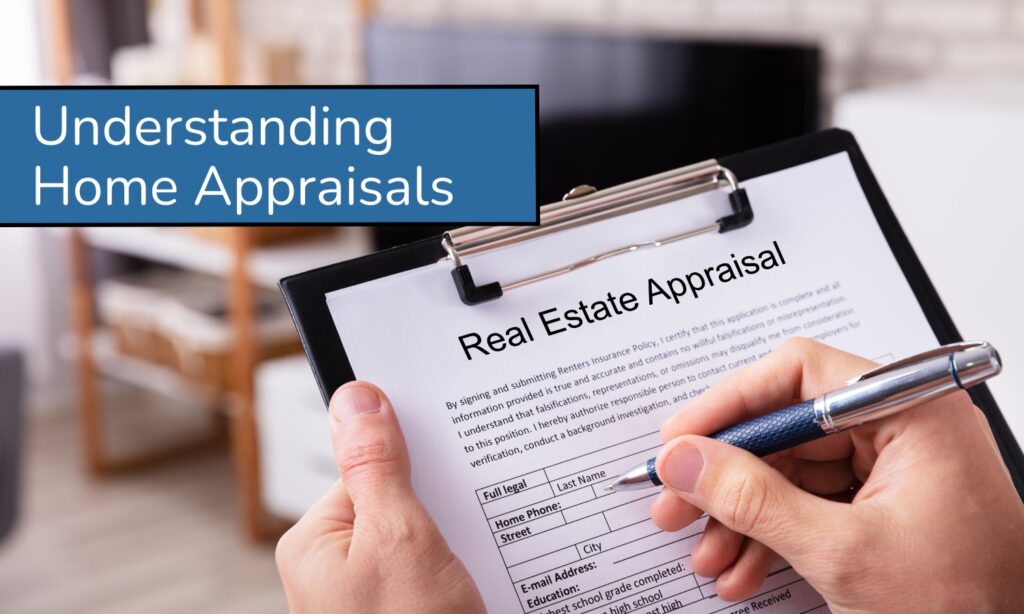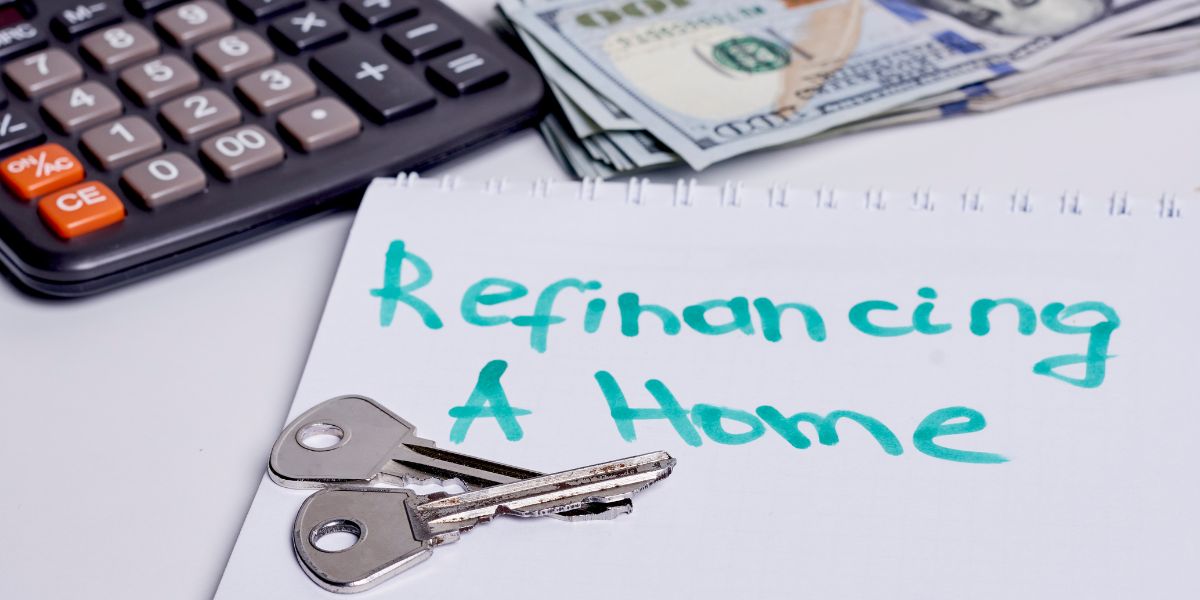A home appraisal is an essential step in various real estate transactions, whether you’re buying, refinancing, or selling a property, unless it’s being sold for cash. For buyers, homeowners, or sellers, understanding the appraisal process can provide clarity on how a home’s value is determined. On average, a home appraisal can cost between $300 to $450, typically paid by the buyer.
What Is a Home Appraisal?
A home appraisal is an unbiased, professional estimate of a home’s value, commonly used in home sales and refinancing.
For a purchase, the appraisal helps determine if the agreed-upon price aligns with the home’s condition, location, and features. In a refinancing situation, it reassures the lender that the home’s value supports the loan amount.
Lenders rely on appraisals to prevent overborrowing, as the home acts as collateral for the mortgage. If the borrower defaults and the home goes into foreclosure, the lender needs to ensure they can sell the property to recover the loan. Essentially, the appraisal safeguards the lender from loaning more than the property’s value in a worst-case scenario.
The Home Appraisal Process and Costs
Since the appraisal is primarily for the lender’s benefit, the lender will usually initiate the process, but the borrower typically covers the cost. Appraisal fees vary based on the property’s size, condition, and the detail required. Though fees are generally in the range of a few hundred dollars, factors like the complexity of the property or market conditions can influence the final price.
Professional appraisers, per regulations, must be licensed or certified, and they need to have knowledge of the local market. Federal guidelines also require that appraisers remain impartial and have no personal interest in the transaction.
What Does a Home Appraiser Look At?
Several key factors influence the appraised value of a home. Recent sales of comparable homes in the area, known as “comps,” and current market conditions are important considerations. The appraiser also evaluates the property’s features, including the number of bedrooms, bathrooms, the layout, and the total square footage.
A full inspection of both the interior and exterior of the home is necessary. During this inspection, the appraiser looks for anything that could negatively impact the property’s value, such as damage or needed repairs.
What Is in an Appraisal Report?
Most appraisers working on single-family homes use the Uniform Residential Appraisal Report from Fannie Mae. This report provides a standardized format to ensure all key aspects of the property are evaluated thoroughly. The appraiser is required to describe the property’s interior and exterior, as well as the surrounding neighborhood. Additionally, they must consider the prices of comparable homes that have recently sold in the area. After reviewing all of these factors, the appraiser will offer a detailed analysis and conclusion about the property’s value.
The appraisal report typically includes:
- A street map highlighting the location of both the appraised property and the comparable sales.
- An exterior building sketch, showing the layout of the home.
- An explanation of how the square footage was calculated.
- Photographs of the home’s front, back, and the street.
- Front exterior photos of each comparable property used in the valuation.
- Additional relevant information, such as market sales data, public land records, and tax records, all of which help determine the home’s fair market value.
What Homebuyers Need to Know About Appraisals
If you’re buying a home and have signed a contract, the appraisal will be among the first steps in the closing process. The appraisal results can significantly impact how the transaction moves forward.
- If the appraisal matches or exceeds the contract price, the deal continues as planned.
- However, if the appraisal comes in lower than the agreed price, this could cause delays or even cancel the deal altogether.
A low appraisal can serve as a helpful tool for buyers. You may be able to use the lower value as leverage to negotiate a price reduction with the seller. Since lenders will only provide financing up to the home’s appraised value, neither you nor future buyers can borrow more than what the property is worth, which can pressure the seller to lower the listing price.
What Can Go Wrong with a Home Appraisal?
Appraisals are beneficial for preventing overpayment, but complications can arise if the seller disagrees with the appraisal’s outcome. If the seller believes the appraisal is incorrect, they may resist lowering the price.
If an unsatisfactory appraisal is holding up the deal, one option is to seek a second appraisal from a different professional. Appraisers can make mistakes or rely on outdated or incorrect information, and it’s also possible that bias may affect their judgment. Alternatively, you can present new information to the original appraiser in hopes of getting a revised valuation. This approach can be effective if you provide evidence that the initial appraisal missed important factors that affect the home’s value.
What Home Sellers Need to Know About Appraisals
For sellers, a low appraisal can be a hurdle. If the home is appraised for less than expected, you may need to reduce the price to sell the home faster. While it may be tempting to wait for an all-cash buyer who doesn’t require an appraisal, this strategy is unlikely to work, as even cash buyers want to avoid overpaying.
If there have been recent distressed property sales in your neighborhood, such as foreclosures or short sales, this can negatively impact your home’s appraised value. However, if you believe your property is being undervalued due to these sales, especially if your home is in better condition than those properties, you can attempt to make a case to the appraiser for a higher valuation. This approach can sometimes succeed, particularly if you can demonstrate that your home stands out compared to the distressed properties nearby.
What Refinancing Homeowners Need to Know About Appraisals
If you’re looking to refinance a conventional mortgage, a low appraisal can be a significant obstacle. To successfully refinance, your home’s value must meet or exceed the amount you’re seeking to borrow. However, if your current mortgage is through the Federal Housing Administration (FHA), you may be able to bypass the need for an appraisal by using the FHA streamline program. This program is especially beneficial for homeowners who owe more on their mortgage than their home is currently worth.
How Long Does a Home Appraisal Take?
The entire home appraisal process generally takes about seven to ten days. This time frame includes the appraiser’s visit to the property, where they will spend an hour or two inspecting both the interior and exterior. The appraiser measures the square footage, notes the condition of the home, and evaluates its features and fixtures.
After the physical inspection, the appraiser conducts research on comparable homes that have recently sold in the area, often referred to as “comps.” Once this research is complete, the appraiser writes up the appraisal report. The time it takes for the entire process can vary depending on the complexity of the property and the appraiser’s workload or schedule.
What Does a Home Appraisal Cost?
A typical home appraisal costs between $300 and $450, but this can vary depending on factors like the location, size, and condition of the home. Appraisers usually charge a flat fee or work on an hourly basis. If you encounter an appraiser who charges a percentage of the home’s value, that’s a red flag for unethical behavior and should be avoided.
What Happens After the Appraisal?
Once the appraisal is complete and the value aligns with expectations, it’s simply another step in the overall closing process. After the appraisal, the next step is mortgage underwriting. The underwriter reviews the entire loan file to confirm that all necessary documents have been submitted and ensures everything is in order. They assess the risk associated with the loan before making a final decision to approve or deny it based on all the submitted information.
What Lowers a Home Appraisal?
The most significant factor influencing a home appraisal is its location. A home’s value can be negatively impacted if it’s situated in an undesirable neighborhood or next to less appealing features like a junkyard, power lines, or a busy street. Conversely, homes located on well-maintained streets, with good proximity (but not too close) to desirable amenities like supermarkets, tend to be appraised at higher values.
While the location is out of your control, you can improve other factors that affect an appraisal. Enhancing curb appeal, keeping the home clean and organized, and addressing minor repairs and cosmetic issues can make a positive impression. Although clutter and mess theoretically shouldn’t affect an appraisal, it’s important to remember that appraisers are human, and a well-kept home may unconsciously influence their perception.
The Bottom Line
When things go smoothly, a home appraisal is just another item to check off the list during the closing process. However, if the appraisal comes in lower than expected, it could lead to delays or even the cancellation of the transaction. Whether you’re buying, selling, or refinancing a home, understanding the basics of how appraisals work is beneficial, especially for first-time buyers.



